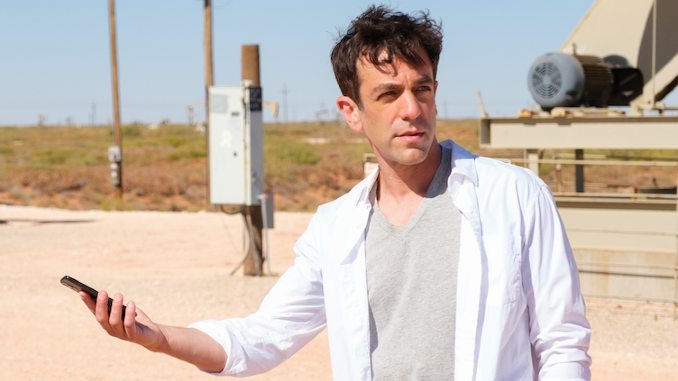I’m Tired of Movies Even Loosely Related to Twitter

When I watch a movie, I’m not trying to be online. This is a crucial aspect to the experience for me. I try to stay away from Twitter and other social media. When I’m watching a movie in the theater, I keep my phone in my purse; at home, admittedly, I’ll have IMDb on hand to double check an actor I recognize (like my dad does). But recently I’ve tried to make a more conscious effort to be on my phone as little as possible, regardless of where I’m watching a movie. The COVID-19 lockdowns in 2020 saw my attention span finally take a substantial nosedive. Where I used to be able to sit through a movie at home and keep my phone commendably out of my hands (beyond looking up actors and other miscellaneous film credits), the excessive amount of time I began to spend on my phone throughout the empty days to barely assuage my chasm of despair broke my brain.
Keeping Twitter and movie-watching separate—in a similar church-and-state type deal—is something I feel very strongly about. And it’s something that I feel should be applicable to the movies themselves. Ironically, someone tweeted something I’ve always liked, a sentiment along the lines of this: A movie shouldn’t be written in a way that makes it clear that the writer spends excessive time online. I believe that screenwriters should take this sentiment to heart; being aware of what’s going on with Twitter will make your movie worse, because trying to capture what’s happening online is like trying to capture air with your bare hands. It makes it increasingly difficult to produce a film which successfully satirizes the social media landscape without feeling like nails on a chalkboard and like what’s being satirized is no longer topical enough for satire at all. This concept felt extremely apparent after watching two new social media-related films: Not Okay and Vengeance.
The former follows entitled, trust fund, twenty-something New Yorker Danni (Zoey Deutch), cravenly desperate for influencer fame, whose fib about an Instagrammable trip to Paris spirals into her becoming a terrorist attack survivor, advocate and, above all, celebrity. Not Okay is a dark comedy about the exploitation of survivor stories that never gets quite as dark or biting as it thinks it does (a sardonic content warning at the film’s start cautions against the film’s “unlikeable female protagonist”).
The latter is The Office star B.J. Novak’s directorial debut in a film he both wrote and (regrettably) leads, about a New York writer and aspiring podcaster who takes mistaken identity and the death of an old hook-up as a way to finally produce “meaningful” work (i.e. lofty ideas pertaining to America and the divide between its people). Vengeance is a movie about so much that it’s about very little; Issa Rae’s producer character tells Novak’s that his podcast is “so you it’s kind of everyone.” Maybe this quality is a little intentional, but it makes for a muddled and occasionally misguided film.
Vengeance and Not Okay are about the commodification of the self in online spaces; the constant race to make the personal universal as a way to profit. But this idea of “it’s so you it’s kind of everyone” paradoxically doesn’t translate in an approach to making internet culture cinematic. Vengeance isn’t specifically about Twitter, but it is about the culture of certain people who use it: Educated, liberal East Coasters. When Ty (Boyd Holbrook), the brother of Novak’s character’s dead ex-fling, refers to his small Texas hometown as a wretched stretch of land that he’d never leave, Ben replies, maddeningly, “That’s how I feel about Twitter.”
-

-

-

-

-

-

-

-

-

-

-

-

-

-

-

-

-

-

-

-

-

-

-

-

-

-

-

-

-

-

-

-

-

-

-

-

-

-

-

-








































